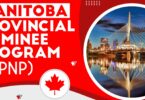Dreaming of a better life in Canada? You’re not alone.
Each year, thousands of individuals and families from Central African countries like Cameroon, the Democratic Republic of Congo (DRC), and Gabon look to Canada as a land of opportunity, peace, and progress. Whether it’s the hope of building a secure future, getting world-class education, or joining loved ones already in the diaspora, the Canadian dream is alive and real for many.
But where do you start? How do you cut through the confusion, avoid scams, and choose the right path?
This detailed guide will walk you through everything you need to know about moving to Canada from Central Africa in 2025—from immigration programs and required documents, to jobs in demand, tuition costs, and how to protect yourself from fraud. Let’s dive in.
Why Canada Is the #1 Choice for Central Africans
Canada’s strong economy, bilingualism (English and French), and transparent immigration policies make it a natural fit for people from Cameroon, DRC, and Gabon. The government has committed to welcoming over 500,000 immigrants annually, and African applicants are among the fastest-growing demographics.
If you speak French or English, have a decent education or job experience, and can plan financially, your chances of getting into Canada are better than ever.
And even if you don’t have a degree or a big bank account, don’t worry. There are still real, legal pathways to enter.
The Best Pathways to Move to Canada (in 2025)
Canada doesn’t offer just one way to immigrate. It offers many, depending on your goals—whether you’re a student, skilled worker, French speaker, or looking to reunite with family.

Express Entry: Fast Track for Skilled Workers
For those with a university degree or skilled job experience, Express Entry remains the fastest route to permanent residency. It’s a points-based system, meaning your chances depend on things like age, language proficiency, education, and work experience.
If you’re under 35, speak English or French, and have a diploma, you may already qualify.
In fact, many Central Africans from Yaoundé, Kinshasa, and Libreville are getting approved within 6–8 months via this route.
Pro Tip: You don’t need a job offer to apply, but having one gives you extra points. Also, French speakers often get bonus points—even outside Quebec!
Study in Canada, Then Become a Permanent Resident
This is one of the most popular and realistic paths for young Central Africans. Why?
Because studying in Canada gives you:
-
A top-quality education
-
A part-time work permit
-
A Post-Graduate Work Permit (PGWP) after graduation
-
A pathway to permanent residency through Canadian Experience Class or provincial programs
If your family can help you fund the first year, you can support yourself afterward through part-time work, internships, and scholarships. Cities like Montreal, Toronto, and Vancouver are full of students from French-speaking Africa.
And here’s the best part: Once you graduate and gain Canadian work experience, you can apply for PR faster and with more certainty.
Provincial Nominee Programs (PNPs): For Specific Jobs or Skills
Can’t meet the Express Entry cutoff? The Provincial Nominee Program might be your key in.
Each province in Canada has unique job shortages. For example:
-
Manitoba loves French-speaking skilled workers and often invites them from abroad.
-
Alberta is in high demand for healthcare, tech, and construction workers.
-
Nova Scotia wants truck drivers and food processors.
You can apply directly to a province or through the Express Entry-linked PNP route. This flexibility is perfect for Central Africans with trade skills or non-academic backgrounds.
Quebec Immigration: Ideal for French Speakers
If you’re from a French-speaking country like Gabon, Cameroon, or DRC, Quebec is practically built for you.
With its French-language immigration system and lower competition compared to Ontario or BC, Quebec offers two key routes:
-
Quebec Skilled Worker Program (QSWP) – for skilled workers applying from abroad
-
PEQ (Quebec Experience Program) – for those who study or work in Quebec
Bonus: Quebec often waives certain federal requirements like IELTS and uses TEF/TCF instead.
What You’ll Need to Start: Documents & Essentials
No matter which route you take, there are some documents everyone must prepare. These are often the cause of long delays, so getting them ready early will save you months.
Here’s what you’ll need:
-
A valid passport
-
IELTS or TEF/TCF language test results
-
An Educational Credential Assessment (ECA) – to verify your degree
-
Police clearance certificate (from all countries you’ve lived in for 6+ months)
-
Medical examination (done only at IRCC-approved clinics)
-
Proof of funds – usually bank statements showing you can support yourself (CAD $13,757+)
-
Work experience – letters of reference from employers, pay slips
Gathering these early gives you a massive advantage over applicants who wait until they’re invited to apply.
Where Central Africans Are Thriving in Canada
It’s not just about moving—it’s about where you move.
Here are some Canadian cities where Central African communities are growing and thriving:
-
Ottawa-Gatineau (bilingual and family-friendly)
-
Montreal (huge French-speaking population, affordable living)
-
Calgary (strong job market and lower taxes)
-
Toronto (diverse, lots of job and education options)
-
Winnipeg (Manitoba PNP makes it easier for French speakers)
Joining a growing African community makes it easier to adapt, find cultural foods, get support, and feel at home.
Jobs in High Demand for Central Africans (2025)
You don’t need to be a doctor or engineer to move to Canada. Many Central Africans are succeeding in trades, health support, and tech jobs.
Here’s where the demand is:
| Job Sector | Example Roles |
|---|---|
| Healthcare | Nurses, PSWs, caregivers |
| Tech & IT | Software developers, data analysts |
| Skilled Trades | Plumbers, electricians, welders |
| Logistics | Truck drivers, forklift operators |
| Agriculture | Farm workers, food processors |
| Customer Support | French-speaking call agents |
Having experience in any of these areas, especially with French or English skills, makes your application much stronger.
Budgeting Your Move: How Much Will It Cost?
Money is often the biggest hurdle for Central Africans, but with careful planning, it’s doable. Here’s what you need to prepare:
For Express Entry or PNP:
-
Visa + biometrics: $500
-
IELTS test: $250
-
ECA: $200
-
Medicals: $300
-
Proof of funds: $13,757 (for 1 person)
For students:
-
Tuition (first year): $10,000 – $18,000
-
Living expenses: $10,000+
-
Flights + insurance: $1,500
Total estimate:
-
Express Entry: $15,000
-
Study route: $20,000+
It’s smart to start saving early or seek sponsorship, family support, or even study loans.
Stay Safe: Avoiding Immigration Scams
Many Central Africans are falling victim to immigration fraud due to desperation or lack of information.
Watch out for:
-
“Agents” asking for large cash deposits via Western Union
-
Fake job offers with no interview
-
Promises of guaranteed visas
-
Fake emails pretending to be from Canadian government
Always:
-
Apply through official government sites: www.canada.ca
-
Verify your consultant’s license at college-ic.ca
-
Avoid shortcuts that seem “too good to be true”
Final Thoughts: You Can Do This
Immigrating to Canada from Central Africa is absolutely possible—and more achievable in 2025 than ever before.
Whether you’re in Douala, Kinshasa, or Libreville, there is a pathway that can work for you:
-
Want fast PR? Go Express Entry.
-
Don’t qualify yet? Study and work in Canada first.
-
Have trade skills? Apply through PNPs.
-
Speak French? Quebec or Francophone streams await.
Start now by gathering your documents, taking your language test, and choosing your path. Don’t let fear, confusion, or false agents stop your journey. Many others have done it—and so can you.
Your new life in Canada is closer than you think. Take the first step today.
Search for Canada migration opportunities below






Leave a Comment